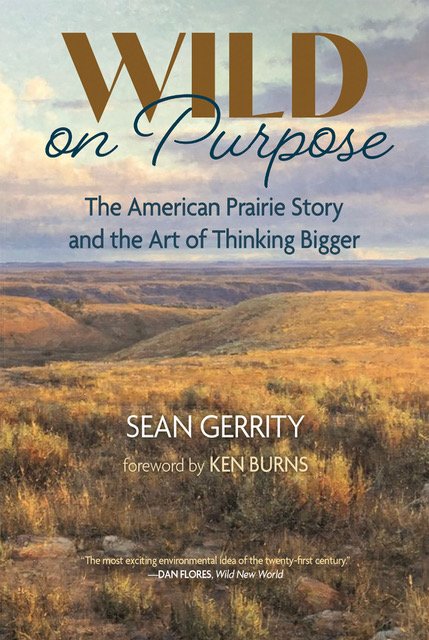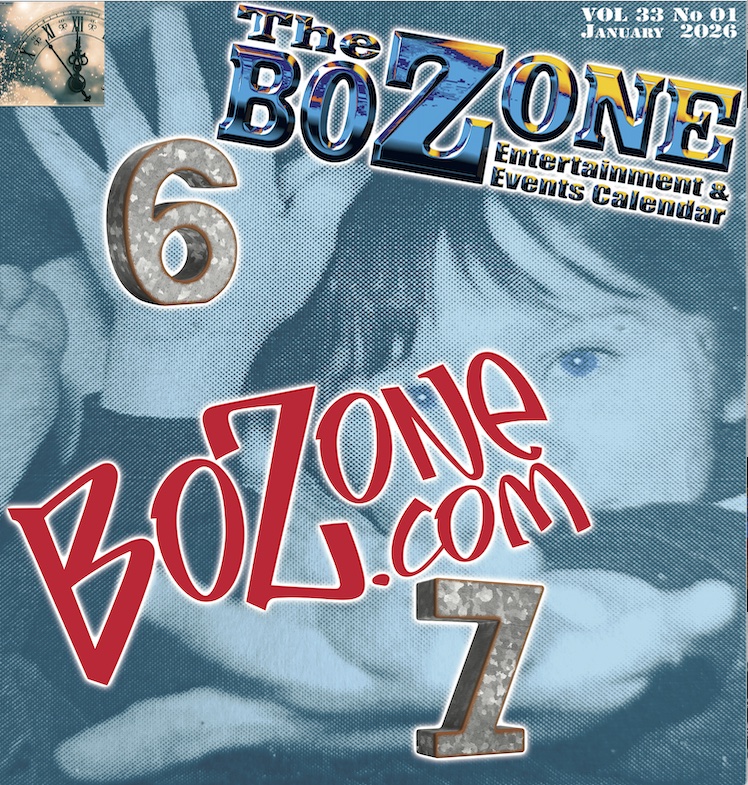 Student advisers, dedicated teachers and innovative researchers from across Montana State University will be honored Tuesday, Jan. 8, as the university presents its annual awards for faculty and staff as part of its Spring Convocation ceremonies.
Student advisers, dedicated teachers and innovative researchers from across Montana State University will be honored Tuesday, Jan. 8, as the university presents its annual awards for faculty and staff as part of its Spring Convocation ceremonies.
The Spring Convocation ceremony will begin at 10 a.m. in Reynolds Recital Hall, where winners of the annual faculty and staff awards will be announced. The awards honor achievements in faculty research, teaching, outreach and creative projects. Faculty, students, staff, alumni and community members are invited to attend.
Convocation events will continue with speaker Greg Young, professor in the School of Music. Young will speak on “Creating Knowledge and Art: A Community of Scholars.” The talk will be held from 2 to 3 p.m. in Reynolds Recital Hall.
Young, who joined the music faculty MSU in 1988, is a professor with particular teaching and research interests in clarinet performance, music composition and interdisciplinary undergraduate research. He served as founding director of the Undergraduate Scholars Program at MSU, and in 2009 he received a grant from the U.S. Department of Education to start the McNair Scholars Program at MSU. Among other roles, Young has served as vice provost for undergraduate education, assistant dean of the College of Arts and Architecture and director of the School of Music. He holds a bachelor’s degree in music education from the University of Western Ontario and master’s and doctoral degrees in music from the University of Michigan.
After the lecture, all are invited to the MSU Library Open House from 3 to 6 p.m. This year’s open house theme is Jules Verne’s “Around the World in Eighty Days.” Food, wine and music will be on hand as the library celebrates diverse cultures and the resources available on campus.
All Spring Convocation events are free and open to the public. For more information, contact the MSU Office of the Provost at 406-994-4371 or Julie Heard at jheard@montana.edu. More information about the open house is available by contacting Ann Vinciguerra at 406-994-6857 or ann.vinciguerra@montana.edu.
Details on the winners of MSU’s faculty and staff awards follow:
Excellence in Innovative Service by Professional Employees Award
Todd Daniels, senior team lead in MSU’s MilTech, won the Excellence in Innovative Service by Professional Employees Award, given to a professional employee who has demonstrated tangible innovation, positive and broad impact on student experience, and/or leadership through role modeling. The award carries a $1,500 honorarium.
Daniels is recognized for creating the concept and leading a team to develop an innovative online platform that connects manufacturers around the country with the Department of Defense to fulfill the technology needs of the U.S military. The platform, called Virtual Industry Day, significantly improves upon the DoD’s old system by expanding its reach and making it more efficient. The platform, which was developed with the help of MSU students, receives no money from MSU but rather generates revenue, playing a key role in MSU’s strategic goal of increasing research income. Daniels received his bachelor’s and master’s degrees from MSU’s engineering college and has worked at MSU for more than 18 years.
Excellence in Outreach Award (Staff)
Kayte Kaminski, assistant dean and director of student success in the MSU College of Education, Health and Human Development, won the Excellence in Outreach Staff Award. She will receive a $2,000 honorarium.
Kaminski was nominated for the award for her creation, outreach and directorship of The Compassion Project, a community-based project designed to bring MSU and Bozeman together through education, discussion and expressions of compassion. Kaminski conceived the Compassion Project as a way to join diverse constituencies to reflect on the value of compassion as a necessary social construct. Kaminski, alongside MSU faculty and staff, worked to create a K-12 curriculum and teacher-training workshops on how to identify and practice compassion. Students in MSU’s multicultural education classes have completed the curriculum training, in addition to the MSU Leadership Fellows student group, MSU Residence Hall Association leaders and more than 200 K-12 teachers and their students and 50 community partners. The initiative’s final project will be a community art installation consisting of more than 8,000 wooden blocks depicting images and themes of compassion.
Excellence in Outreach Award (Faculty)
Mark Schure, assistant professor of community health in the Department of Health and Human Development, won the Excellence in Outreach Award for Faculty. The award comes with a $2,000 honorarium.
Schure was nominated for his outreach and research in depression and for promoting innovative interventions for improving mental health with the MSU Center for Mental Health Research and Recovery. After securing a National Institutes of Health and Montana IDeA Network of Biomedical Research Excellence grant, Schure worked closely with MSU Extension to develop and deliver an online program so rural Montanans can improve their moods through cognitive behavior therapy. The program, Thrive Montana, allows users in the privacy of their own homes to manage feelings of depression and anxiety. The program has proven to reduce depression and anxiety symptoms among adults. A feasibility study has since been published in the Journal of Rural Mental Health and the program is expanding statewide.
Betty Coffey Award
Kelly Knight, associate professor of sociology, will receive the Betty Coffey Award in memory of an engineering professor who was noted for her teaching excellence and championing of women’s equity and minority issues in the curriculum. The award comes with a $1,000 honorarium.
Knight has made contributions to the progress of women on the MSU campus and has advanced the sociology and criminology curriculum in critical ways that have a real-word impact. A leading scholar in victimology, Knight has published groundbreaking and highly cited research in the subdiscipline. She has brought this expertise into the classroom, developing and implementing courses in victims and society and sociology of law enforcement, while insuring that those courses include feminist, critical race and trauma-informed perspectives. The training and mentorship that MSU graduates received from Knight make them better in their post-graduate careers. In turn, those graduates make Montana a more peaceful and equitable place.
Teaching Innovation Award
Megan Wickstrom, assistant professor in MSU’s Department of Mathematical Sciences in the College of Letters and Science, has won the Teaching Innovation Award, which honors a faculty member or faculty members who have incorporated outstanding innovative teaching practices into their classes. Wickstrom will receive a $2,000 honorarium.
Wickstrom’s creative and effective teaching method integrates students’ lived experiences into their mathematical experience to break down traditional barriers. An education student who conducts research with Wickstrom said she doubted her own ability to teach mathematics, but Wickstrom’s instruction gave her a “mathematical toolbox” she can use to teach her own elementary students.
Wickstrom regularly incorporates hands-on tools like Legos, maps and quilt blocks in her geometry course for elementary teachers. Her innovation led her to develop an interactive robotic geometry lesson using funds from a teaching innovation grant. She regularly uses these tools at MSU’s “Expanding Your Horizons” and demonstrated robotic use at the Science Olympiad. Wickstrom’s creation of student-centered learning modules that other instructors can use significantly expands the reach of the program.
Wickstrom mentors other instructors and is a generous academic collaborator. She has co-authored several journal articles with faculty colleagues and classroom teachers based on teaching innovations at MSU.
Anna K. Fridley Phi Kappa Phi Honor Society Distinguished Teaching Award
Thomas Donovan, Honors, and Catherine Zabinski, Department of Land Resources and Environmental Sciences, are the recipients of the Anna K. Fridley Phi Kappa Phi Honor Society Distinguished Teaching Award recognizing a faculty member whose accomplishments with students reach beyond the classroom and the library. Each recipient will receive a $1,000 award.
Since May 2015, graduating seniors in the MSU Honors College have selected Thomas Donovan as their faculty speaker during Honors College’s twice-yearly celebration. That is a testament both for Donovan’s skill as a teacher as well as his abilities as a mentor. A professor for both Texts and Critics as well as Honors Seminar, Donovan is a master teacher whose dedication to students goes beyond the classroom. Donovan has the ability to draw out of students ideas that need development but does it in a way that gives students confidence in themselves. He is also said to be “an energizing presence among students and colleagues.”
Zabinski, plant ecologist and professor in the MSU College of Agriculture, was nominated for her accomplished mentorship of MSU students, innovative curriculum development in land rehabilitation and professional activity in assessing departmental outcomes. With the support from a USDA Higher Education Challenge Award, Zabinski created a departmental senior undergraduate capstone course in environmental sciences. The course has since grown into an annual program where students engage in and conduct research in collaboration with local, state and federal partners on issues related to land management. Zabinski’s instruction, research and mentorship across diverse agro-ecology fields has yielded in-depth peer assessments and strong course and adviser evaluations. Many of Zabinski’s students have received awards and pursued successful careers with government agencies and other universities.
Women’s Faculty Caucus Distinguished Mentor Award
Elizabeth Burroughs, professor and department head in MSU’s Department of Mathematical Sciences in the College of Letters and Science, has been named the 2019 Women’s Faculty Caucus Distinguished Mentor, recognizing extraordinary efforts in mentoring junior women faculty in the university and contributing substantially to the career development of one or more women faculty members. The award comes with $2,000.
As a person who creates a supportive environment that fosters the realization of long- and short-term goals, Burroughs exemplifies a mentor. Former graduate students, current faculty members and post-doctoral researchers she has worked alongside say she has played a role in shaping their careers.
Burroughs understands that mentoring young female scholars creates a stronger university. She helps create a supportive environment for women that contributes to the overall happiness and success of her department. One graduate student reflected that as she progressed through her doctoral work, Burroughs guided her by gradually increasing her independence and responsibility. Junior colleagues praise Burroughs’ willingness to include them in her research projects and foster the development of their own projects.
Known for encouraging research and teaching through collaboration and astute guidance, Burroughs also provides crucial support as department head. Her colleagues note that she supports their mathematical work, provides a steady hand and is a role model of work-life balance.
Cox Faculty Award for Creative Scholarship and Teaching
Kevin Repasky, professor in the Department of Electrical and Computer Engineering, has won the Cox Faculty Award for Creative Scholarship and Teaching. The award comes with a $2,000 honorarium.
Repasky is known as an exemplar of the teacher-researcher who invests deeply in student learning, both in the classroom and the lab. No matter the difficulty of the subject matter, his teaching mastery and concern for students shines through. His research has helped build a world-class MSU program in remote sensing, including atmospheric measurements that improve weather prediction and climate modeling. A legacy of successful graduates is a tribute to his mentoring approach, which immerses students in learning and discovery.
Outstanding Academic Advising Award
Melody Anacker, assistant teaching professor in the Department of Health and Human Development, and Cyndi Meldahl, director of the Education Advising Center in the Department of Education, have won the Outstanding Academic Advising Award. Each will receive a $2,000 honorarium.
Anacker is known as a hard-working and dedicated professional who provides compassion, guidance and warmth to the students she advises. She also goes out of her way to make sure that students have the work and volunteer experience needed to make their resumes stand out. Anacker’s award nominator notes that she encourages students who are excelling to strive for more by defining their strengths and addressing challenges. For students facing dark times, she persists and helps them carve a path to success. “This devotion is why (those students) succeed at MSU and leave our campus with a sense of well-being, confidence and the hope for a better life,” the nominator wrote, adding that Anacker’s legacy is a group of students who attribute their success in the food and nutrition program to her guidance and counsel.
Meldahl is known for her commitment to students, one of whom stated: “It isevident to me . . . that Cyndi believes in students and helps them believe in themselves.” Colleagues say she is committed to responsive, informed advising that ensures that the education department’s advising center anticipates, rather than lags behind, needed changes in student programs. As director of the center, she also involves the entire education team in reflecting on how changes can be clarified for students, and she has built a team that maintains a sterling reputation across the college. Meldahl’s nominator writes: “Those of us who work in the Department of Education hear every day student comments that reflect their warm regard for Cyndi and their faith in the quality and care of advising services she offers.”
Fox Faculty Award for Achievement in Teaching, Research, Scholarship, Creativity and Mentoring
Mary Miles, professor in MSU’s Department of Health and Human Development, has won the Fox Faculty Award for Achievement in Teaching, Research, Scholarship, Creativity and Mentoring. The Martin Fox family and MSU’s Office of Academic Affairs sponsor the award, which includes a $3,325 honorarium.
Miles demonstrates a strong commitment to classroom instruction, teaching undergraduate- to graduate-level courses across multiple majors. She pushes her students to think critically and use evidence-based approaches to solve problems.
As a researcher, Miles focuses on critical health topics such as metabolism, nutrition and immune function. Her work in inflammation response is particularly significant as inflammation is a common factor in many diseases, including diabetes and heart disease. She has published more than 50 peer-reviewed journal articles and book chapters and is recognized for her interdisciplinary scholarship and as a fellow in the American College of Sports Medicine.
Miles mentors both undergraduate and graduate students as well as junior faculty at MSU and other universities.
Charles and Nora L. Wiley Award for Meritorious Research and Creativity
Jennifer DuBois, associate professor in MSU’s Department of Chemistry and Biochemistry, has won the Charles and Nora L. Wiley Award for Meritorious Research and Creativity. The award recognizes an MSU faculty member who has made a single, especially significant, research achievement or who has a recent body of research work exhibiting extensive and mature research activity. The MSU Alumni Foundation sponsors the award in honor of the Wileys, eastern Montana pioneer ranchers. DuBois will receive $2,000.
DuBois is an internationally recognized scientist whose research group has made major contributions that are providing fundamental new understanding of critical reactions in biology, while making ties to the evolutionary history and the potential health implications of key enzymes and reactions. She has authored or co-authored nearly four dozen papers published in important journals, including Biochemistry and the Journal of the American Chemical Society.
A sought-after speaker, DuBois has been invited to numerous prestigious scientific conferences and meetings. She was twice honored with young investigator awards at past Gordon Research Conferences on Enzymes, Coenzymes and Metabolic Pathways and is currently chair-elect of the conference — a prestigious position won by election of her colleagues.
Dubois enjoys the mental work of evaluating scientific problems and working toward understanding. She is thoughtful, creative, collaborative, incisive and an outstanding mentor for next-generation scientists.
Vice President for Research Meritorious Technology/Science Award
Rob Maher, professor in the Department of Electrical and Computer Engineering, has won the Vice President for Research Meritorious Technology/Science Award, which recognizes an MSU faculty member who has made significant technological/scientific contributions. He will receive an honorarium of $2,500.
Over the course of a decade of research at MSU, Maher has established himself as a nationally sought-after expert in the field of audio forensics. His work includes documenting the unique audio signatures of gun shots as well as assessing the limitations of this kind of forensics analysis. His publications and presentations have provided much-needed objective information in criminal and civil court cases around the country. The recent publication of his book, titled “Principles of Audio Forensics,” marks a major contribution to this important field of research.
Provost’s Award for Undergraduate Research/Creative Mentoring
Molly Todd, history, was the recipient of the Provost’s Award for Undergraduate Research/Creative Mentoring. The award comes with $2,000.
Todd, whose work centers on displacement and migration resulting from civil wars and dictatorships in Central and South America, has spent more than 1,000 hours mentoring more than 65 undergraduate students. She has helped them produce research that matters and that can be consumed by the general public. In the process, she has both created a successful model for applied humanities research and helped undergraduates produce meaningful projects that have had an impact beyond the university. The author of the book “Beyond Displacement: Campesinos, Refugees and Collective Action in the Salvadoran Civil War,” Todd has worked with living history museums, youth theater, “theater of the oppressed” and oral history projects to bring hidden stories to life and bridge divides between people and nations.
Provost’s Award for Graduate Research/Creative Mentoring
Joseph Seymour, professor in the Department of Chemical and Biological Engineering, has won the Provost’s Award for Graduate Research/Creative Mentoring, which recognizes a faculty member who engages graduate students in this valuable learning process. The award comes with a $2,000 honorarium.
Seymour is known for an infectious love of research that attracts some of MSU’s best graduate students. Since coming to MSU in 2001, he has chaired or co-chaired committees for 10 doctoral graduates — roughly a quarter of the doctorate earners in his department — and served on committees for numerous other graduate students. Nearly 60 of the papers he has published at MSU have been co-authored by students. His mentoring includes pushing his students to embark on international research experiences and present at international conferences and forums such as Three Minute Thesis to share their important findings with the wider community. He is known for staying in touch with his students once they leave Bozeman, finding ways to support their careers and aspirations around the world.
James and Mary Ross Provost’s Award for Excellence
Christine Stanton, associate professor in the Department of Education, will receive the James and Mary Ross Provost’s Award for Excellence in recognition of excellence in teaching and scholarship. The award includes a $2,500 honorarium.
Stanton teaches social studies pedagogy in curriculum and instruction courses in the MSU College of Education, Health and Human Development. Preparing undergraduate students in MSU’s teacher education program, Stanton infuses her own scholarship into the classroom to promote inquiry-based learning through a lens of multiculturalism, equity, justice and representation in education. Providing a range of instructional practices that engage and stimulate both undergraduate and graduate students, Stanton explores culturally affirming classroom instruction and research methods. In diverse projects that integrate place and indigenous knowledge, Stanton has received a National Science Foundation grant and an MSU Outstanding Faculty Researcher Award. Additionally, she has co-directed a project on digital storytelling that integrates film-making and community-based participatory research with language and oral histories of Montana’s Little Shell, Apsaalooke and Piikani tribes.
President’s Commission on the Status of University Women Award
Chatanika Stoop, Center for Faculty Excellence, has won the President’s Commission on the Status of University Women Award, which honors a member of the faculty or staff who has established a record of working to improve issues related to gender, equity, and diversity on any of MSU’s four campuses. The award comes with $2,000.
As part of MSU’s ADVANCE Project TRACS and then research resources coordinator in the Center for Faculty Excellence, Chatanika “Nika” Stoop has spent her career working to improve gender equity and diversity at MSU. Since she arrived on the MSU campus, Stoop has become known for her ability to organize complex projects with creativity and grace. Her work training faculty on the grant-writing and submission process has enhanced the research capacity among women and other junior faculty in STEM fields. Another example is her work as one of the organizers of the recent 125 Extraordinary Ordinary Women event, which was a part of MSU’s 125th anniversary celebration. Stoop displayed leadership, commitment, dedication, drive and an ability to stay calm under pressure, which made the Extraordinary Ordinary Woman celebration a success. Her work on behalf of women at MSU has been groundbreaking and will be long-lasting as MSU embarks on its next 125 years.
President’s Award for Excellence in Service Learning
Wendy Bianchini Morrison, instructor in the Department of Health and Human Development, has won the President’s Award for Excellence in Service Learning. The award comes with a $1,000 honorarium.
Morrison is known for creating exceptional community-based, culturally competent study abroad programs. In service learning courses she created and led in Morocco, Zambia and Ecuador, she partnered with local organizations where MSU students engaged in projects based on the requests of these communities, contributing to larger, sustainable development projects improving the health and well-being of those communities. The students learned about the critical components of what sustainable community development is, and what it is not, along with the ethics of international development. The students experience firsthand the principles in practice, learn the challenges of sustainable development, and increase their competence to work with diverse populations. According to one community partner, Morrison equipped her students well to integrate, learn from and even mentor the field-based staff. She was sensitive to her students, assisted them to process the life-changing, cross-cultural experiences they were having, and operated as much more than just an educator: Morrison was clearly a well-trusted and admired mentor by each of her students.
President’s Award for Excellence in Teaching
Brent Rosso, associate professor of management in the Jake Jabs College of Business and Entrepreneurship, has won the President’s Award for Excellence in Teaching. The award comes with a $2,500 honorarium.
Rosso, who is known for helping his students develop as critical thinkers and lifelong learners, has designed innovative new pedagogies and experiential learning opportunities that enliven and deepen student learning. A capstone assignment in one course has students take on the role of consultants to a real organization and provide their clients with recommendations for improvement based on course principles. In “The Entreprentice Challenge,” student teams are given only $25 to launch a real business in the first three weeks of class, with the aim of being as impactful and profitable as possible. All of the profits are then donated to a local nonprofit of the class’ choice. Evaluations from Rosso’s students show his efforts are paying off. One student wrote that Rosso’s class “pushed me to think critically and solve problems in unusual ways. He is available 24/7 to help excel at anything he assigns and is always eager to go beyond his job scope to make sure everyone is getting the most out of their education.”







